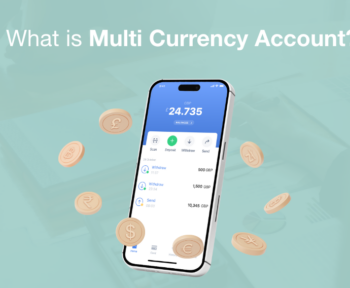Online payment transactions have become simpler than ever in our current digital age. Blockchain and e-wallet transactions play a huge part in this especially for more transparency.
In this regard, Jeton operates as a dependable digital platform that customers use to send and receive funds securely while also offering storage capabilities.
Jeton serves various user groups through its international reach and feature variety including freelancers who receive payments from abroad as well as online shoppers and business operators. Jeton provides digital wallet services which enable users to store money and conduct payments or purchases through simple clicks.
Traditional e-wallets often face scrutiny due to their opaque transaction processes. The inability to track the source and destination of funds creates inevitable uncertainty.
Blockchain for digital wallets serves as a solution by delivering a tamper-proof public ledger which transforms digital wallet transactions and enhances e-wallet security for everyone involved.
Join us in this blog as we explore blockchain, its main elements, how it solves business problems, how e-wallets are changing the blockchain technology, and more in detail. Let’s start!
What Is Blockchain? How Does Blockchain Work?
Blockchain functions as a distributed ledger system that ensures transaction records are both visible and permanent. The fundamental structure of blockchain technology involves digitally stored data or transactions that are organized into blocks.
A cryptographic connection between each new block and its preceding block creates a linked “chain” of transaction records. The transaction log exists on multiple computers across a network which prevents any centralized control that could allow changes to the data.
Powerful computers need to solve complex mathematical puzzles in order to add transactions to the blockchain. The mining process both verifies transactions and generates new blocks. All network nodes must agree through computational means on whether each transaction should be included.
Any modification to a stored block requires changes to every block that follows in the sequence. Blockchain technology ensures records remain immutable and open so users can trust that transaction histories remain secure from any modifications.
What Are the Five Elements of Blockchain Technology?
Blockchain functionality is defined by five fundamental elements:
- Decentralization enables blockchain data to exist across thousands of global computers which eliminates the possibility of a single controlling authority over the network and information. No single point of failure or manipulation exists in the system.
- Anyone who has access to the blockchain can see all its recorded transactions. The design of blockchain enables clear visibility of transaction paths, underpinning blockchain and financial transparency.
- Altering blockchain records becomes extremely difficult and resource-intensive once they are entered into the system. Once recorded on the blockchain, each transaction becomes an unchangeable element of the immutable ledger, supporting traceable e-wallet transactions.
- Blockchain systems employ strong cryptographic methods together with digital signatures to protect transactions. The use of complex mathematical problems within blockchain technology prevents counterfeiting and prevents “double spending.”
- Blockchain allows participants to keep their identities private while their transactions remain visible to the public. Blockchain addresses consist of cryptographic hashes instead of personal user information.
How Many Blockchains Are There in the World?
Beyond Bitcoin there exist thousands of operational blockchains today. Every blockchain network operates based on its specific technical rules and protocols. All blockchain networks function independently but they share fundamental characteristics that ensure both security and transparency.
Bitcoin, Ethereum, XRP, BNB, Solana, Cardano and Tron stand out as the biggest and most recognized blockchains in existence.
- The pioneering blockchain Bitcoin maintains the leading position by total value while serving as its own cryptocurrency network.
- Ethereum enables smart contracts while providing support for numerous cryptocurrencies and decentralized applications.
- XRP specializes in banking and international payments for financial institutions.
- BNB Smart Chain is a blockchain designed for DApps and decentralized exchanges with lower fees than Ethereum.
- Solana is a high-performance blockchain that is designed to support decentralized finance (DeFi) and other applications that require high throughput and low latency. It uses a unique Proof-of-History (PoH) consensus mechanism, which enables it to process transactions much faster than other blockchains.
- Cardano is a proof-of-stake blockchain with a focus on scalability, interoperability, and sustainability.
- Tron specializes in decentralized applications and content distribution.
The blockchain industry sees new blockchains developing to serve specific industry demands in areas such as supply chain management and healthcare registration systems. The technology has important uses which extend way beyond cryptocurrency wallets functions.

Is Blockchain Trustworthy?
Blockchain technology remains highly reliable for transaction and digital data recording because its greatest strengths contribute to its trustworthiness. The main factors that make blockchain technology highly trustworthy consist of:
- Changing blockchain information demands overwhelming control over the whole decentralized system which remains an impossible task.
- Blockchains operate publicly and transparently which enables anyone to audit transactions and identify errors and fraudulent activities.
- Blockchain systems remain immune to manipulation from single entities because they function without a centralized authority.
- The use of advanced cryptographic methods such as digital signatures and hashes protects each transaction by stopping any forgery or tampering attempts.
- Smart contracts execute predetermined terms between parties automatically without requiring third-party intervention.
Blockchain generates trust based on its technological foundations instead of relying on trust in people and institutions. Its characteristics make blockchain technology especially valuable for applications that require high levels of trust including financial systems, supply chains and public record keeping.
How Does Blockchain Solve Business Problems?
The trust and transparency characteristics of blockchain enable businesses to address real-world challenges with novel methods.
- Through blockchain technology supply chain management achieves better visibility into global networks and enhances product quality verification while streamlining operations and authenticating goods.
- Blockchain payment networks offer businesses reduced costs and faster processing for cross-border B2B transactions compared to conventional payment systems.
- Through blockchain-based self-sovereign digital identities users gain enhanced control over their credentials which they can securely share and verify.
- Programmable smart contracts e-wallets enable automatic execution which reduces errors while maintaining e-wallet data security.
- The immutability of blockchain records establishes reference data as a consistent source of truth between organizations.
- Blockchain technology alters financial systems by enhancing efficiency and security while improving transparency for asset trading and loan origination as well as compliance procedures.
Jeton stands out as a top platform for online payments and digital wallets. Jeton users can now buy, sell, and trade popular cryptocurrencies such as Bitcoin and Ethereum directly from their digital wallet, leveraging blockchain e-wallet transactions and blockchain transaction verification.
The core elements of blockchain technology enable this integration for crypto trading operations. Distributed ledgers record transactions to provide both permanence and transparency.
Users can monitor exchange rates and transaction paths independently from any intermediaries. The transparent architecture of blockchains prevents fraudulent activities by enabling public verification of payment transactions.
Jeton offers businesses a smooth payment gateway to process e-wallet online sales. The benefits of transparency and security along with improved settlement processes enjoyed by B2B firms can be achieved through blockchain integration. The global structure of blockchain networks enables smoother transactions for international sales.
Blockchain technology opens up digital value transfer processes like never before. It creates permanent public transaction records which build participant confidence while preserving user privacy.
The combination of greater trust and transparency alongside stronger integrity levels in blockchain technology explains why e-wallet platforms such as Jeton are set to revolutionize online commerce and financial operations across both individual and corporate sectors.
Business owners and shoppers both benefit from decentralized e-wallets which deliver trustworthy, protected payment options with full transparency.
Blockchain technology transforms e-wallet transactions through its revolutionary approach to transparency standards. The immutable and accessible structure of blockchain ledgers assures users that payment transactions remain unchangeable.
The solution reduces potential threats for both consumers and merchants. As Jeton and similar platforms adopt blockchain technology, e-wallets stand on the brink of becoming payment systems that balance both transparency and privacy.
The advantages of control, visibility, and e-wallet fraud prevention delivered by blockchain clearly demonstrate why it will continue its growth to establish itself as the foundation of digital finance.
How Can I Use Blockchain for My Business?
The blockchain technology which supports cryptocurrencies such as Bitcoin can fundamentally change digital transactions through enhanced traceability and security. Businesses that process online payments through Jeton could gain multiple advantages from adopting blockchain technology.
The blockchain functions as an open distributed ledger which permanently records all transactions in a manner that can be verified. The transparency ensures merchants can track funds from payment through to receipt while eliminating double-spending and falsified transaction disputes.
The blockchain system makes illegal actions visible to everyone on the network which effectively discourages fraudulent behavior. Smart contracts function as self-executing programs which activate when preset conditions are satisfied to deliver automated security for business transactions.
Order and delivery agreements together with payment terms could be stored on blockchain networks for autonomous operation without requiring intermediary management. The implementation streamlines business procedures while establishing trust between parties involved in transactions.
Blockchain for digital wallets creates one shared truth that companies interacting with international customers or involved in intricate supply chains can access. The shared transaction ledger enables cross-border coordination and protects privacy and security with encryption. Businesses can streamline their digital payment acceptance and reduce future financial risks through blockchain adoption.
How Does Blockchain Show What Happens in E-Wallets?
Traditional e-wallets provide users with limited information about the journey their money takes from depositing to withdrawing. Private parties conduct transactions without leaving any public transaction record.
The lack of transparency in some digital payment systems has enabled fraudulent activities and illicit transactions to establish themselves. Blockchain technology delivers unprecedented transparency to electronic wallet transactions.
All transactions executed through blockchain payment systems such as Jeton are logged in a public ledger accessible to every participant. The blockchain ledger records sender and recipient addresses along with transfer amounts and timestamps for each transaction.
Every coin, token, or fiat transaction made through blockchain systems enables users to track their funds from start point to end destination. Through blockchain technology users gain assurance that their money reached its destination intact without any instances of double-spending or theft. Vendors receive proof of purchases, reducing disputes. Regulators and law enforcement officials can use public records for conducting investigations.
Blockchain establishes an open financial system that allows all involved parties to independently verify blockchain e-wallet transactions, enhancing blockchain and financial transparency. E-wallet users gain unparalleled visibility into their digital transactions while traceability acts as a deterrent to criminal activities. Transparency at this level establishes essential trust in new payment technologies.

How E-Wallets Are Changing with Blockchain
Traditional e-wallets maintain funds in a central company database which creates security risks for users when the platform faces hacks or bankruptcy. The transfer process is non-transparent because it takes place in secret meetings.
The positive transformation brought about by blockchain technology stems from its ability to distribute control and make transaction details publicly viewable. Blockchain networks power decentralized transparent e-wallets and eliminate corporate server dependency.
Blockchain networks distribute user funds across numerous nodes which protect them with cryptographic security rather than storing them centrally with one organization. The shared ledger keeps all funds secure even when a node fails. Decentralization eliminates single points of control and failure.
Programmable logic within smart contracts enables automated execution for processes such as conditional payment operations. Blockchain-based e-wallet systems allow vendors to release payments to suppliers only after confirming product delivery which prevents payment disputes.
Users adopt smart budgeting applications which enable them to create automated payment schedules and control spending through approved merchant lists.
Blockchain transparency represents a significant enhancement because all participants can access and view every transaction recorded on the immutable blockchain.
Blockchain technology provides senders, receivers and regulators with assurance that financial transactions proceed as planned without unauthorized interference. The anonymity of fraudsters disappears when their transactions become publicly documented for examination.
Blockchain delivers decentralization, automation and transparency benefits to digitally advance e-wallets into more secure and reliable systems. Users achieve better command of their finances while vendors and authorities receive new mechanisms to reduce financial risks.
Making E-Wallets Safer with Blockchain
E-wallets deliver convenience but traditional centralized systems expose users to cybercrime risks and platform breakdowns. Blockchain enhances e-wallet security in several key ways:
- Blockchain protects transactions through strong digital signing methods that rely on public/private key cryptography. The security of your funds stays intact when keys are stolen unless attackers gain access to the private key.
- System decentralization distributes the ledger across multiple nodes to remove single points of system failure and hacking risks. A hacker needs to capture and control more than half of the network nodes at the same time to alter blockchain data.
- An immutable blockchain ensures that recorded transaction data cannot be modified or deleted. The persistent record prevents fraudulent activities and provides users assurance that their historical transactions are immutable.
- On transparent blockchains every fund transaction has clear visibility of both its source and endpoint. Digital fingerprints left from criminal activities serve as a strong deterrent because these traces can be audited. Criminals who steal coins could face identification because their transactions can be traced.
- Programming transactions within smart contracts enables automation of processes such as conditional payments and multi-signature wallets. Payment assurance for vendors occurs only after fulfillment of contractual terms, reducing blockchain transaction verification issues.
E-wallet services such as Jeton improve user security by utilizing blockchain features. Cybersecurity protects funds while transparency helps prevent criminal activities and enables authorities to better enforce regulations. Blockchain technology ensures that digital wallets operate as dependable and secure platforms for transferring value within digital markets.
Problems with Blockchain and E-Wallets
Blockchain technology resolves numerous issues for electronic wallets but simultaneously creates fresh problems.
- The increasing adoption of blockchain technology by users leads to difficulties in blockchain networks when processing high transaction volumes. The user experience suffers while mainstream adoption opportunities for blockchain technology diminish.
- Immutable ledgers provide security benefits but prevent the correction of errors after they occur. Users face permanent fund loss when they forget their keys or send transactions to the wrong addresses.
- Public blockchains display all transaction details which compromises user privacy. Analyzing traceable e-wallet transactions allows criminals the potential to dox users over time.
- Some blockchain networks face centralization risks because mining pools or exchanges might achieve majority control even though these networks claim to be decentralized.
- Economic hazards emerge for users and vendors when cryptocurrencies connected to decentralized e-wallets display extreme price volatility. Stablecoins provide a solution to price volatility but they introduce centralization drawbacks.
- Different countries have varied legal frameworks governing blockchain assets. Ambiguous or limiting regulations may affect the growth of innovation and e-wallet fraud prevention opportunities.
Blockchain shows great promise but still needs to overcome existing obstacles before it can fully transform digital payment systems. Services such as Jeton advance technological development through safe and responsible integration of these technologies.
You can learn about how Jeton’s blockchain-based e-wallet and payment services can support your requirements by visiting our website or reaching out to our sales team. Jeton positions itself to lead the future of online value transfers through its responsible integration of emerging technologies.
Experience true transparency in every transaction. With Jeton, blockchain technology meets the power of a secure e-wallet—giving you full control, clarity, and confidence with your money.
Open your Jeton account today and join the future of transparent finance. Do not forget to download the Jeton App from Google Play or the App Store and manage your finances anytime, anywhere!


